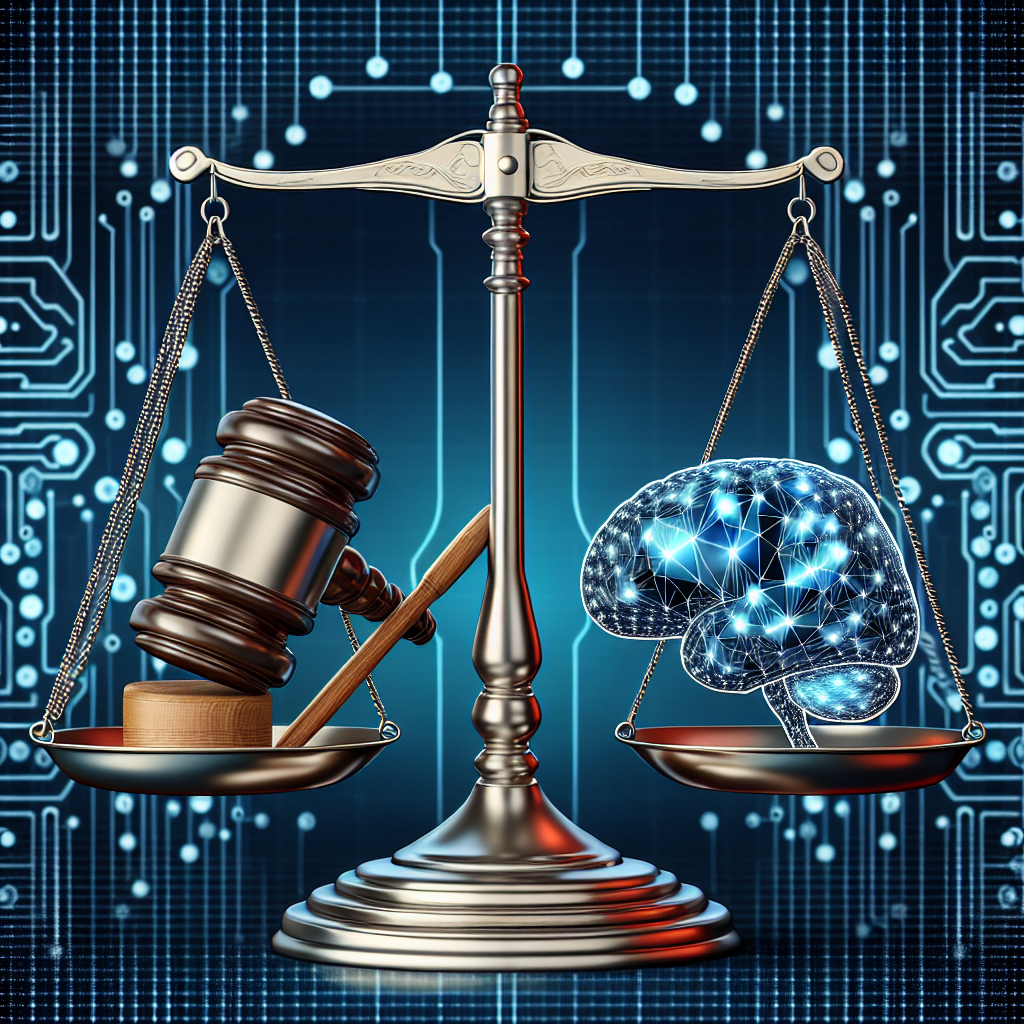Artificial Intelligence (AI) has revolutionized many industries, including the legal sector. One of the key areas where AI is making a significant impact is in predicting legal outcomes. By using advanced algorithms and machine learning techniques, AI can analyze vast amounts of data to forecast the likely outcome of legal cases with a high degree of accuracy. This technology has the potential to revolutionize the way legal professionals work, making their jobs more efficient and effective.
The Role of AI in Predicting Legal Outcomes
AI technology has the ability to analyze large volumes of data quickly and accurately, allowing legal professionals to make more informed decisions. By using AI to predict legal outcomes, lawyers can better assess the strengths and weaknesses of their case, identify potential risks, and develop strategies to achieve the best possible outcome for their clients.
One of the key advantages of using AI to predict legal outcomes is its ability to identify patterns and trends in legal data that may not be immediately apparent to human analysts. By analyzing past case outcomes, AI can identify factors that are likely to influence the outcome of a particular case, such as the judge’s past rulings, the legal arguments used by the parties, and the specific facts of the case. This can help lawyers to better understand the strengths and weaknesses of their case and develop a more effective legal strategy.
AI can also help legal professionals to manage their caseload more efficiently. By automating tasks such as legal research, document review, and case analysis, AI can free up lawyers to focus on more strategic aspects of their work, such as developing legal arguments and negotiating settlements. This can help to reduce the time and cost of legal proceedings, making legal services more accessible to a wider range of clients.
In addition to helping lawyers to predict the outcome of individual cases, AI can also be used to identify broader trends in legal outcomes. By analyzing a large dataset of legal cases, AI can identify patterns and trends that may be relevant to a particular legal issue or jurisdiction. This can help lawyers to anticipate changes in the law, assess the likely impact of new legislation, and develop strategies to mitigate legal risks.
Overall, AI has the potential to revolutionize the legal profession by providing lawyers with powerful tools to predict legal outcomes, manage their caseload more efficiently, and identify trends in legal data. By harnessing the power of AI, legal professionals can deliver better outcomes for their clients and improve the overall efficiency of the legal system.
FAQs
1. How accurate is AI in predicting legal outcomes?
AI technology has been shown to be highly accurate in predicting legal outcomes, with some studies reporting accuracy rates of over 90%. However, the accuracy of AI predictions can vary depending on the quality of the data used and the complexity of the legal issues involved. It is important for legal professionals to use AI predictions as a tool to inform their decision-making, rather than relying solely on AI to make decisions for them.
2. How does AI predict legal outcomes?
AI predicts legal outcomes by analyzing large volumes of legal data, such as past case outcomes, judge’s rulings, legal arguments, and factual information. By using advanced algorithms and machine learning techniques, AI can identify patterns and trends in the data that are likely to influence the outcome of a particular case. This allows legal professionals to make more informed decisions and develop strategies to achieve the best possible outcome for their clients.
3. Can AI replace human lawyers?
While AI technology is becoming increasingly sophisticated, it is unlikely to replace human lawyers entirely. AI can automate many routine tasks, such as legal research and document review, but human lawyers are still needed to provide strategic legal advice, develop legal arguments, and negotiate settlements. AI can complement the work of human lawyers by providing them with powerful tools to predict legal outcomes and manage their caseload more efficiently.
4. Is AI ethical in predicting legal outcomes?
The use of AI in predicting legal outcomes raises ethical issues, such as bias in the data used, transparency in the decision-making process, and accountability for the results. It is important for legal professionals to use AI technology responsibly and to ensure that the predictions generated by AI are fair, accurate, and unbiased. Legal professionals should also be transparent with their clients about the use of AI in their legal work and seek to mitigate any potential ethical concerns.
In conclusion, AI technology has the potential to revolutionize the legal profession by providing lawyers with powerful tools to predict legal outcomes, manage their caseload more efficiently, and identify trends in legal data. By harnessing the power of AI, legal professionals can deliver better outcomes for their clients and improve the overall efficiency of the legal system. However, it is important for legal professionals to use AI technology responsibly and ethically, and to continue to rely on their own expertise and judgment in making legal decisions.

